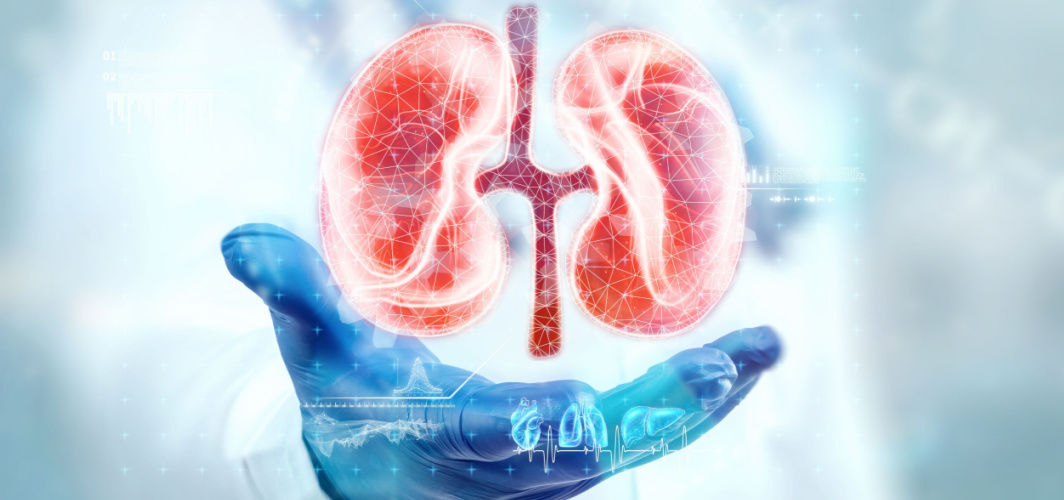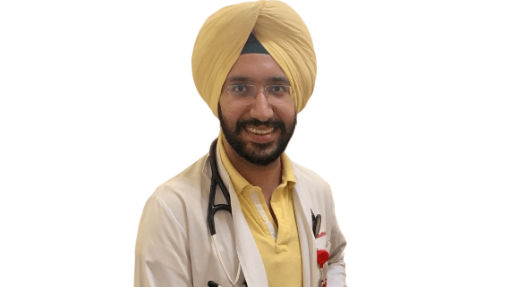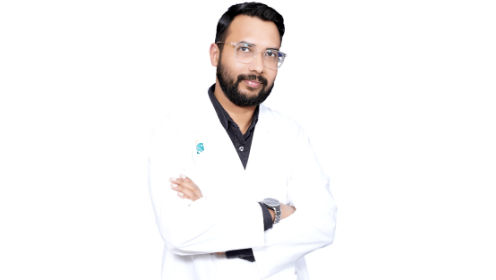General Health
Understanding Fatty Liver Disease: A Comprehensive Overview
7 min read
By Apollo 24|7,Reviewed by Dr. Srividya Kalavagunta, Verified by Dr. Divya Chandrasekharan, Published on - 12 August 2024
Share this article
0
0 like
.jpg?tr=q-80)
The liver is a vital organ that tirelessly keeps our body functioning smoothly. It filters all of the blood in the body and breaks down toxic substances, such as alcohol and drugs. It also produces bile, which aids in the digestion of fats and helps in waste removal. Sometimes, this vital organ loses the ability to perform functions as it should. It can be due to various reasons. One of those issues is fatty liver disease, also known as hepatic steatosis. It is a condition that often sneaks in unnoticed, quietly wreaking havoc on our liver's delicate balance. In this condition, excess fat accumulates in the liver, which leads to liver inflammation, damage, and even more severe conditions like liver cirrhosis.
In this article, we will learn about fatty liver disease and its types, identify its often-overlooked symptoms, discuss fatty liver complications, and learn about its diagnosis, treatment, and prevention.
Types of Fatty Liver Disease
- Metabolic dysfunction-associated steatotic liver disease (MASLD) or Non-alcoholic fatty liver disease (NAFLD): MASLD is the most common cause of chronic liver disease and the leading cause of liver-related complications and death. It is caused by overweight, obesity, high blood sugar, uncontrolled hypothyroidism, and high cholesterol. The liver cells are not inflamed or damaged in this condition, but the fat deposition makes the liver function harder over time.
- Metabolic dysfunction-associated steatohepatitis (MASH) or Nonalcoholic steatohepatitis (NASH): This is the advanced stage of fatty liver disease, which involves inflammation in the liver. This inflammation and liver cell damage can lead to severe issues such as fibrosis, cirrhosis, liver failure, and even liver cancer if not treated early. In such cases, there would be a requirement for a liver transplant.
- Alcohol-related fatty liver disease or alcohol-associated fatty liver: Drinking alcohol is often a part of social life. Excessive alcohol consumption can lead to several health consequences. It can result in a condition known as alcohol-related fatty liver disease. In this disease, long-term alcohol use damages the liver, preventing it from working as it should. In the early stages of the condition, reducing or stopping alcohol consumption can reverse the problem.
Symptoms of Fatty Liver Disease
Fatty liver disease often progresses silently in the early stages, and many people do not notice the symptoms. However, as the condition advances, various signs and symptoms can emerge.
Below are some symptoms of fatty liver:
- Fatigue or tiredness
- Loss of appetite
- Nausea and vomiting
- Discomfort in the upper right abdomen
- Yellowing of the skin and eyes (in advanced cases)
- Swelling in your abdomen, legs, and hands (edema)
- Unexplained weight loss
- Gynecomastia or larger than normal breasts in men
Diagnosis of Fatty Liver Disease
While diagnosing fatty liver disease, doctors will look for accumulation of excess fat in the liver. They may do some tests to rule out the possible causes. Here are the steps typically involved in the diagnosis:
- Medical History: The doctor will enquire about your medical history, drinking habits, diet, exercise habits, and any symptoms you may be experiencing. They will also ask about any underlying conditions you have, such as obesity, diabetes, and high cholesterol.
- Physical Examination: The doctor will check for liver enlargement, jaundice, and other physical indicators of liver disease like swelling in abdomen, gynecomastia.
- Blood Tests: The doctor will ask for blood tests such as liver functions and coagulation tests to look for signs of liver inflammation or damage and assess liver functioning.
- Imaging Tests: The doctor will suggest abdominal ultrasound to reveal the presence of fat in the liver and exclude other causes of abnormal liver tests (e.g., biliary obstruction or hepatic mass).
- Liver Biopsy: In some cases, the doctor may suggest a liver biopsy to confirm the diagnosis and assess the severity of liver damage. In liver biopsy, a small sample of liver tissue is removed with a needle and examined under a microscope.
Treatment for Fatty Liver Disease
Fatty liver disease can be reversed if you follow your doctor's advice and maintain a healthy weight. Your liver is one of the few organs in your body that can replace damaged tissue with new cells, but it can happen only by avoiding alcohol and maintaining a healthy lifestyle. Let's have a look at how fatty liver disease can be treated.
Lifestyle changes
- Eat low-fat or non-fat foods (E.g. lean meat, poultry, fish, and other protein foods).
- Avoid eating bakery products.
- Drink clear liquids and eat bland foods.
- Use low-fat cooking methods such as boiling, broiling, grilling, steaming, or baking.
- Aim to engage in at least 30 minutes of moderate-intensity exercise on most days of the week, including brisk walking, swimming, or cycling.
- Try to lose weight if you are overweight. Losing weight can help reverse NAFLD and improve metabolic dysfunction. Losing around 5% of your body weight enhances abnormal liver tests and reduces liver fat. Weight loss should be gradual, as rapid weight loss can worsen liver disease.
Medications
Your doctor may prescribe medications to manage underlying causes (i.e., drugs to control your cholesterol levels, blood sugar, or other conditions) and provide symptomatic treatment. However, no drugs are currently approved explicitly by regulatory agencies for the treatment of NAFLD.
Nutritional supplements
Some supplements such as Vitamin E, Omega-3 fatty acids, and probiotics may be helpful. However, consult your doctor before starting any supplements.
Complications of Fatty Liver Disease
As the liver tries to stop the inflammation caused by fatty liver disease, it creates scars. Eventually, the liver cannot function as it should due to inflammation and scarring. This leads to various types of complications, such as:
- Fluid buildup in the belly
- Increased risk of heart attack and other heart diseases
- An overactive spleen
- Liver cirrhosis (severe liver damage)
- Liver cancer
- Liver failure
Prevention of Fatty Liver Disease
Preventing fatty liver disease involves adopting a healthy lifestyle and taking good care of your dietary and drinking habits. Here are some ways to prevent fatty liver disease:
- Eat a well-balanced diet with fruits, vegetables, whole grains, and lean proteins.
- Limit consumption of sugary beverages and snacks, which can contribute to fat accumulation in the liver.
- Opt for healthy fats in avocados, nuts, seeds, and olive oil while avoiding trans fats and saturated fats.
- Limit alcohol intake or stop altogether, especially if you have risk factors for liver disease.
- Engage in moderate-intensity aerobic exercises daily, such as brisk walking, cycling, or swimming.
Maintain a healthy weight.
Conclusion
Fatty liver disease is the accumulation of fat in the liver, which can result from a diet high in unhealthy fats, being overweight, or some underlying conditions like high cholesterol and excessive alcohol consumption. Initially, this condition may present subtle symptoms. Still, as it progresses, individuals may experience fatigue, loss of appetite, vomiting, pain in the upper right abdomen, and swelling in the abdomen, legs, and hands (edema). Left untreated, fatty liver disease can lead to severe complications such as an increased risk of heart attack and other cardiovascular diseases, an overactive spleen, liver cirrhosis (severe liver damage), liver cancer, and liver failure.
However, the good news is liver damage can be reversed if diagnosed early. Lifestyle changes like low-fat or non-fat foods (e.g. lean meat, poultry, fish, and other protein foods) and avoiding alcohol can help manage fatty liver disease. Additionally, regular exercise can help improve overall health and promote liver function. By following these lifestyle changes, individuals can regain optimal liver health in the early stage.
Seeking Medical Attention
While many people with fatty liver disease experience no symptoms, it's crucial to seek medical attention if you notice any of the mentioned symptoms and also get a yearly liver test if you are at risk of developing liver disease. Early diagnosis and intervention can prevent irreversible damage to your liver and improve your overall health.
Apollo 24|7: Your Partner in Liver Health:
Whether looking for lab tests to diagnose fatty liver disease or consultations with experienced doctors, Apollo 24|7 is here to help. Our comprehensive lab tests can provide accurate results, and our experienced doctors can guide you toward the right treatment plan. Take charge of your liver health today with Apollo 24|7.
Services
General Health
Consult Top Hepatologists
View AllLeave Comment
Services
Recommended for you

General Health
Signs You Need A Full-body Checkup
A full-body checkup is the most effective way of keeping track of your overall health status. It enables your doctor to figure out how well your body is functioning and whether or not you need to take any extra measures to keep yourself healthy.

General Health
Thalassemia: All You Need To Know About This Deadly Blood Disorder
Thalassemia is an inherited blood disorder that adversely affects the ability of the body to produce haemoglobin. Over time, the disorder causes the destruction of a large number of red blood cells, resulting in anaemia.

General Health
All You Need To Know About Kidney Disease
This comprehensive article delves into the critical role kidneys play in our health, emphasizing their functions, regulation, and the intricate mechanisms that maintain bodily balance. Covering various kidney diseases, the piece discusses their types, symptoms, and the importance of timely diagnosis. It emphasizes lifestyle changes, dietary modifications, and the significance of regular check-ups to prevent kidney-related complications and maintain optimal kidney function.
Subscribe
Sign up for our free Health Library Daily Newsletter
Get doctor-approved health tips, news, and more.
Visual Stories

The Best Exercises for Controlling Blood Sugar Levels
Tap to continue exploring
Recommended for you

General Health
Signs You Need A Full-body Checkup
A full-body checkup is the most effective way of keeping track of your overall health status. It enables your doctor to figure out how well your body is functioning and whether or not you need to take any extra measures to keep yourself healthy.

General Health
Thalassemia: All You Need To Know About This Deadly Blood Disorder
Thalassemia is an inherited blood disorder that adversely affects the ability of the body to produce haemoglobin. Over time, the disorder causes the destruction of a large number of red blood cells, resulting in anaemia.

General Health
All You Need To Know About Kidney Disease
This comprehensive article delves into the critical role kidneys play in our health, emphasizing their functions, regulation, and the intricate mechanisms that maintain bodily balance. Covering various kidney diseases, the piece discusses their types, symptoms, and the importance of timely diagnosis. It emphasizes lifestyle changes, dietary modifications, and the significance of regular check-ups to prevent kidney-related complications and maintain optimal kidney function.



